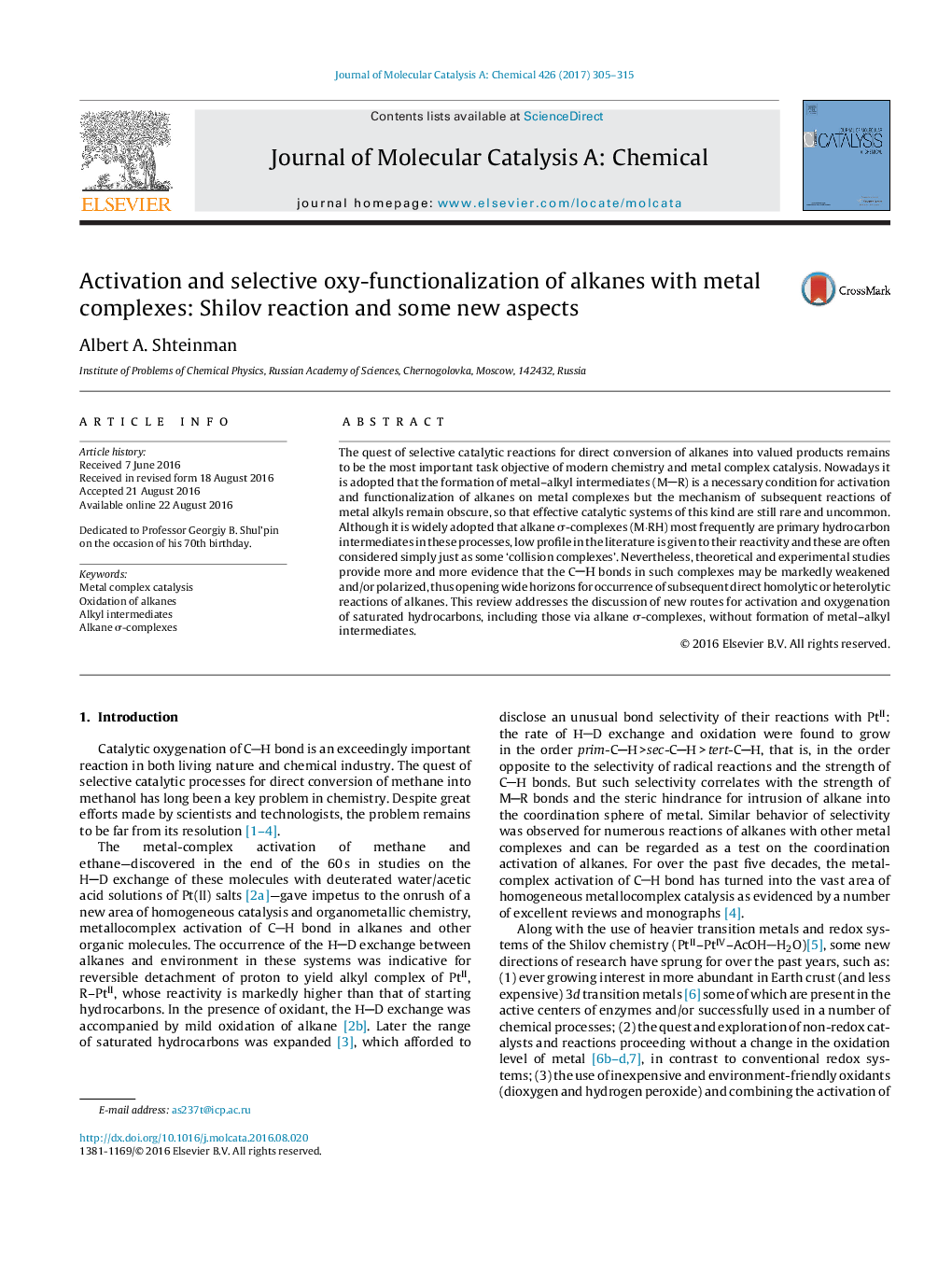| Article ID | Journal | Published Year | Pages | File Type |
|---|---|---|---|---|
| 6456403 | Journal of Molecular Catalysis A: Chemical | 2017 | 11 Pages |
â¢Shilov chemistry is paradigm of CH bond activation involving metal alkyls.â¢The quest for new ideas in the field is actual now and is discussed in the review.â¢New routes for activation and oxygenation of saturated hydrocarbons are discussed.
The quest of selective catalytic reactions for direct conversion of alkanes into valued products remains to be the most important task objective of modern chemistry and metal complex catalysis. Nowadays it is adopted that the formation of metal-alkyl intermediates (MR) is a necessary condition for activation and functionalization of alkanes on metal complexes but the mechanism of subsequent reactions of metal alkyls remain obscure, so that effective catalytic systems of this kind are still rare and uncommon. Although it is widely adopted that alkane Ï-complexes (M·RH) most frequently are primary hydrocarbon intermediates in these processes, low profile in the literature is given to their reactivity and these are often considered simply just as some 'collision complexes'. Nevertheless, theoretical and experimental studies provide more and more evidence that the СРbonds in such complexes may be markedly weakened and/or polarized, thus opening wide horizons for occurrence of subsequent direct homolytic or heterolytic reactions of alkanes. This review addresses the discussion of new routes for activation and oxygenation of saturated hydrocarbons, including those via alkane Ï-complexes, without formation of metal-alkyl intermediates.
Graphical abstractDownload high-res image (73KB)Download full-size image
